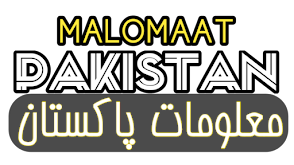Guide to EU Scholarships 2024: How to Get Money for Your European Education
Europe has many good schools where you can learn different things. But school fees can be a big problem for some students. EU scholarships help by giving money to students from all over the world so they can go to school in Europe.
This guide tells you about EU scholarships for 2024. It helps you understand what they are and how to get them.
Here's what you'll learn:
- Types of EU Scholarships: Learn about the different kinds of scholarships from the EU and its member countries.
- Who Can Get Them: Find out what you need to qualify for an EU scholarship.
- What You Get: See what benefits you get if you get a scholarship.
- How to Find the Right One: Tips on how to find the best scholarship for you.
- How to Apply: Learn what you need to do to apply for a scholarship.
- When to Apply: Know the deadlines for applying.
- Questions Answered: Get answers to common questions about EU scholarships.
- Conclusion: Recap the important points and get motivated to apply for a scholarship.
Types of EU Scholarships:
The EU has different scholarships you can apply for:
- Erasmus Mundus Joint Master Degrees: This helps students who want to get a Master's degree from more than one university in Europe.
- Erasmus+ Scholarships: These support students at different levels, like undergraduates, Master's, and PhD students. Each country in the EU manages these scholarships, and each has its own rules.
- Marie Skłodowska-Curie Actions: This helps students doing research for their PhD or after they finish their PhD.
Who Can Get Them:
To get an EU scholarship, you usually need to:
- Be from a certain country: Some scholarships are only for people from certain countries.
- Be studying at a certain level: Scholarships are usually for undergraduates, Master's, or PhD students.
- Have good grades: Some scholarships need you to have good grades from your previous studies.
- Speak the language: You might need to know English or the language the school teaches in.
What You Get:
If you get an EU scholarship, you might get:
- Your school fees paid for: This helps you save money on your education.
- Money for living: Scholarships might give you money for rent, food, and other living costs.
- Money for travel: Some scholarships pay for your travel to the country where you'll study.
- Other benefits: Some scholarships also give you health insurance or help you with your research.
How to Find the Right One:
Here's how to find the best scholarship for you:
- Choose your program: Find a school or program in Europe that interests you.
- Look at the school's website: Many schools have information about scholarships on their websites.
- Check government websites: Some countries have websites with information about scholarships.
- Use scholarship websites: Look for scholarships that match what you're looking for.
How to Apply:
To apply for an EU scholarship, you usually need to:
- Read the rules: Make sure you understand what you need to do to apply.
- Get your documents ready: You'll usually need things like your grades, letters from teachers, and a statement about why you want the scholarship.
- Submit your application: Make sure you apply before the deadline and follow the instructions for how to apply.
When to Apply:
The deadline for applying for scholarships can be different for each one. Some have early deadlines, and others accept applications all year. Make sure you check the deadline for the scholarship you want and apply on time.
Questions Answered:
Here are some common questions about EU scholarships:
- Can I apply for more than one scholarship? Usually, yes, as long as you qualify for them. Just make sure they don't have conflicting start dates or requirements.
- What happens after I apply? It depends on the scholarship. You might have an interview, or you might get an email about whether you got the scholarship or not.
- What documents do I need? Usually, you need things like your grades, letters from teachers, and proof of your language skills.
- Do I need to speak a certain language? Many scholarships want you to know English or the language the school teaches in.
Conclusion:
EU scholarships are a great way to study in Europe without worrying about the cost. Use the tips in this guide to find and apply for the right scholarship for you. Start by researching schools and scholarships early, get your application ready, and apply before the deadline. If you have questions, don't be afraid to ask the school or scholarship provider.
With hard work and the right resources, you can get an EU scholarship and have an amazing experience studying in Europe. Take the first step today and start your journey to a great education!



.jpeg)




.png)

